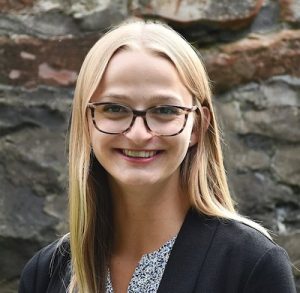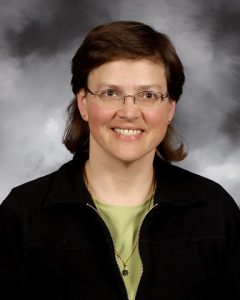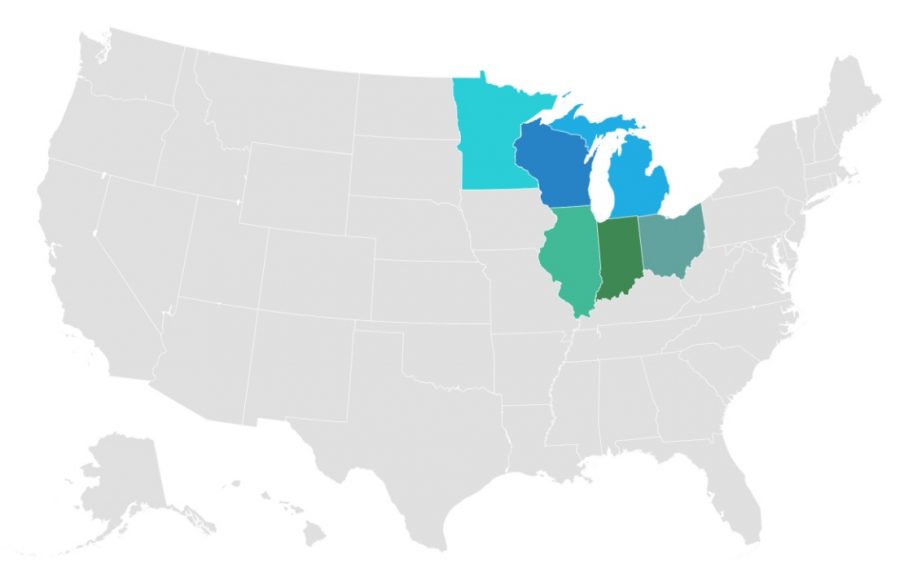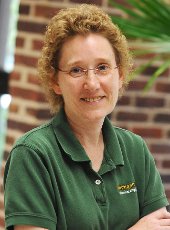The Department of Chemical Engineering proudly bestows honors and awards to ChE students each spring by way of a Convocation Awards Ceremony. This year we were unable to host an in-person event, but were fortunate to recognize our students virtually on April 16, 2021.
The faculty and staff of Chemical Engineering join together in offering our sincerest congratulations to all of our honored recipients and this year’s graduating class. Kudos on your resilience, determination and drive for success.
Keynote Speaker
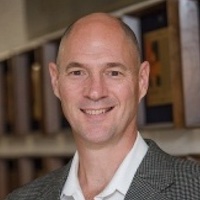
Bradley Rick ’84 ’86
Bradley Rick earned his BSChE in 1984 and his MSChE in 1986, both from Michigan Tech.
During his graduate studies Brad was part of a research team sponsored by the US Environmental Protection Agency, studying the adsorption of VOCs in off-gas emitted from air-stripping towers that treated contaminated groundwater. Brad has spent his 35-year career working at Amway Corporation, an $8B global leader in direct selling consumer products, located in Ada, Michigan.
His early years were devoted to engineering roles in both process development and product R&D. As a result, Brad holds multiple patents, and has held executive positions at Amway over the past 20 years in Quality Assurance, Information Technology, Engineering, and Manufacturing. Brad is currently is Director of Manufacturing at Amway, responsible for a family of plants making paper and plastic packaging, powdered nutrition drinks, soft gel vitamin supplements, probiotics, and carbonated energy drinks.
Chair’s Award for Outstanding Chemical Engineering Senior

Matt Harris
The Chair’s Award for Outstanding chemical Engineering Senior recognizes the exceptional record of a chemical engineering graduating senior for their academic achievement, experiential learning activities, and community engagement. To be eligible for consideration the candidate must be graduating in the current calendar year, demonstrate their commitment to the chemical engineering profession and show how their activities have positively impacted others through inspiration, action and/or leadership.
Matt has been involved in many student organizations on campus, holding various leadership positions, taken on many volunteer roles, has worked multiple co-op and internship positions, all while maintaining a high level of academic achievement. Where Matt’s experience at Michigan Tech stood out from his peers was in his commitment to mentoring students, demonstrated through his involvement with the rowing activities on campus as part-time coach and instructor, as well as his involvement with the department’s student advisory board and peer mentoring program. Matt has taken the opportunity to positively impact students across campus with these activities as well as provide service to the department by contributing valuable feedback about the current student experience and assisting his peers. Matt’s willingness to openly share what he has learned on how to be successful with other students is an asset to not just the students he helps but to the chemical engineering program and university as a whole.
Excellence in Communication Award

Erin Andersen
The Excellence in Communication Award was created to acknowledge the critical role that effective communication plays in successful leadership. This award recognizes a graduating senior from the department of chemical engineering for their effective use of communication of the highest standard. Candidates for this award may be nominated by faculty, staff, or students.
Erin was nominated by a student. Her nominator states:
“…I would like to nominate Erin Anderson for the Excellence in Communication Award. I believe she qualifies for this award as she was an amazing Orientation Leader. As an incoming Freshman in 2018, there were a lot of things I was not aware of initially entering college that she effectively communicated to me as an Orientation Leader. She also provided a Welcoming Environment for me and my peers in our group, and made herself available for any questions and or concerns I might’ve had. From the beginnings of my college experience as a Freshman, she helped Communicate to me that Michigan Tech was an Inclusive and Enjoyable place to go to college…”
Professional Ethics Award

Bryce Walbrun
This award recognizes a student who has exhibited exemplary ethics and admirable professional conduct during Plant Design and Unit Operations experiences, and throughout their academic career at Michigan Technological University.
Bryce Walbrun was nominated for this award by a faculty member because of his honesty and candor, even extending to self-evaluation of his own performance as a CPM Enterprise project leader. In Enterprise and his coursework, Bryce has shown awareness of the importance of following ethical guidelines, and he has asked probing questions about workplace ethical dilemmas.
Prevent Accidents With Safety (PAWS) Award

Meredith Grusnick
The Prevent Accidents with Safety (PAWS) Undergraduate Lab Safety Program is a comprehensive safety program requiring training, constant vigilance, and incident reporting and documentation systems— all with an eye toward critical review and continuous improvement. The Prevent Accidents with Safety (PAWS) program provides a framework to develop the necessary safety culture within the student community. The key to the PAWS program is that the students in the Unit Operations Laboratory bear the responsibility for personal health and safety and for the safety of those around them. Specific safety-related responsibilities are assigned to the students in addition to their course responsibilities. The student owned portion of the PAWS program is built around a safety committee and a communications and documentation system.
Throughout the capstone lab sequence, Meredith promoted a strong safety culture and worked to improve our safety program. In addition to being part of the safety team, Meredith organized a guest speaker, a Health & Safety Specialist at Dow Chemical, to talk with the class about industrial safety, specifically covering safety incidents, the response to those incidents, and the protocols put in place because of them. Meredith felt these topics are relevant to her peers, and discussing them would provide an opportunity to gain an understanding of management systems that are in place and the role of chemical engineers in these systems.
Marriot W. Bredekamp Award
Joleen Adams, David Alger, Kevin Miltenberger and Kyle Koetje
This award recognizes outstanding technical skills in the laboratory, outstanding teamwork and professionalism, effective oral and written communication, and strong adherence to process safety practices as recognized by your peers and supported by the faculty of the department. This award is in memory of Dr. Marriot W. Bredekamp.
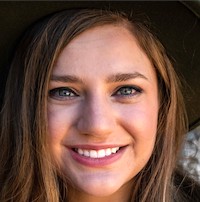



Senior Design Team Awards
First Place (John T. Patton Award)
Michael Griggs, Paul Langsford, Matthew Schienke, and James Somerville for “FCC Ostromislensky Chemical Plant Producing 1,3-Butadiene from Ethanol”




Second Place
Mallory Bunker, Emily Burke, Meredith Grusnick, and Bridget O’Connell for “Proposal for an FCC Hydrocarbons Plant Producing Ethylene from Raw Ethane in Baton Rouge, LA”

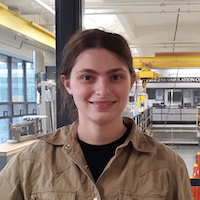

Third Place
David Alger, Shane Cruthers, Jon Hook, and Kyle Koetje for “FCC Expansion into Crude Oil Refining”


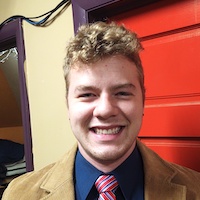

Dr. John Patton, as Chair and faculty member, initiated much of the content of today’s design courses in the ChE Department. He brought his experiences at Exxon to the classroom to provide students with a systematic way to design and analyze a new large-scale capital project. This award recognizes the student team in CM4861 that created the best plant design and recommendation for Fictitious Chemical Company. We are proud that Dr. Patton, in retirement, can see the elements of design he taught are alive and well in our soon-to-be graduates.
Davis W. Hubbard Outstanding Rising Senior Award
Cameron Reid
Dr. Davis W. Hubbard was a faculty member in the Department of Chemical Engineering for many years. He was committed to engineering education and inspired a generation of students to excel through hard work and perseverance. The eligible candidate for this award has completed all their junior-level core chemical engineering courses. The selection of the award is based on (i) grade point average for the course work done at Michigan Technological University, (ii) research engagement, and (iii) internship/co-op work experience.
In addition to Cameron’s impressive performance in his course work at Michigan Tech and co-op experience, Cameron has been the treasurer for AIChE for the last year. He has been very involved with the organization, both as a member and on the e-board. Cameron has been described by his nominator as “very proactive and timely, bringing new ideas to the table and getting tasks done efficiently”.
Student Organization Leadership Awards
AIChE
AIChE had an outstanding E-board this year. They worked extremely well together to improve the organization, including increasing the number of companies that participated at meetings. This year’s eboard was led by Tanner Sheahan. Tanner’s efforts to improve AIChE has resulted in an increased number of meetings, sponsors, and opportunities for our students. Congratulations Tanner.
CMLC
As the coordinator for the CMLC this year, Bryce was presented with a challenge of how to organize everything. He needed to make sure that students could get the help that they needed, while also making sure that the rules for distancing and preventing potential disease spread were followed. He rose to the challenge, and the CMLC coaches were able to do what needed to be done while still ensuring that everyone could remain healthy.
CPM
This year, the CPM Enterprise has 10 projects and nearly 50 students, so it is a complex organization to keep on track. Jacob Michaud (President) and Kelsey Farrell (V.P.) have teamed up this year to keep CPM running like a well-oiled machine. Their imprint will continue to be felt for years to come. Both have set high standards for themselves, and they have seen to it that students under their management get a good Enterprise experience. Jacob and Kelsey deserve our acknowledgment and recognition.
OXE
Omega Chi Epsilon is the National Honor Society for Chemical Engineering. The Society promotes high scholarship, encourages original investigation in chemical engineering and recognizes the valuable traits of character, integrity and leadership. It serves both undergraduate and graduate students and fosters meaningful student-faculty dialogue.
In recognition of his leadership of OXE over the past year, the OXE award goes to former president John Baughn.
SAB
The SAB leadership award goes to Matt Harris. The Student Advisory Board this year had a very talented and engaged team that, in addition to continuing past initiatives, took on a new initiative this year to review the Department web-site and social media from a students’ perspective and how it can be improved in terms of ease of navigation and finding the needed information. As SAB President, Matt Harris led and motivated a very capable team. The true sign of a leader is to position the organization so it can function smoothly afterwards.
AEE
Jacob Orlando has been elected twice as president to serve on the leadership board of the Alternative Energy Enterprise (AEE) for the past two years. To be elected president twice is a pretty remarkable feat in itself. As one of the faculty mentors in AEE, along with Jay Meldrum, I have appreciated Jacob’s enthusiasm for alternative energy, his ability to keep the various AEE teams organized, and in providing encouragement to students in AEE to take advantage of the opportunities that it offers. Congratulations Jacob.
